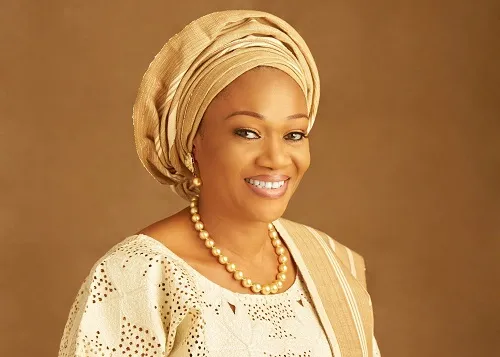1st lady empowers vulnerable women with N50m in Nasarawa
The First Lady of Nigeria, Senator Oluremi Tinubu, has donated N50,000 each to 1,000 women petty traders as grants under the Renewed Hope Initiative to improve their businesses in Nasarawa State. Senator Oluremei, who made the donation on Thursday at the Government House, Lafia, was represented by Mrs Silifat Abdullahi Sule, the wife of Nasarawa […]

Oluremi Tinubu
The First Lady of Nigeria, Senator Oluremi Tinubu, has donated N50,000 each to 1,000 women petty traders as grants under the Renewed Hope Initiative to improve their businesses in Nasarawa State.
Senator Oluremei, who made the donation on Thursday at the Government House, Lafia, was represented by Mrs Silifat Abdullahi Sule, the wife of Nasarawa State Governor, Abdullahi Sule.
She said that the rationale behind the gesture was targeted at ameliorating the current economic challenges being faced by women in the state.
She said that the beneficiaries were drawn from rural areas across the 13 local government areas of the state, adding that this would go a long way in boosting their businesses and improving their wellbeing.
- Minimum wage: Labour, FG sign MoU on salaries adjustments
- CAN, Patience Jonathan greet Remi Tinubu at 64
She further said that the scheme was mapped out to support rural women traders in all the 36 states of federation, including the Federal Capital Territory (FCT), Abuja, to enable them to contribute towards revamping the nation’s economy.
Earlier, Governor Sule’s wife, represented by Shela Tosan-Akabe, wife of the deputygovernor of the state, appreciated the first lady for her benevolence, noting that this would go a long way in addressing the challenges petty traders were experiencing owing to the current economic hardship.
On her part, the state’s Commissioner for Women Affairs and Social Development, Aisha Rufai Ibrahim, charged the beneficiaries to use the funds to improve their businesses.
Speaking in an interview with our correspondent shortly after the disbursement of the funds, some of the beneficiaries, Amina Suleiman-Ibrahim and Hadiza Mohammed, said that they would use the money to invest in grain business.
